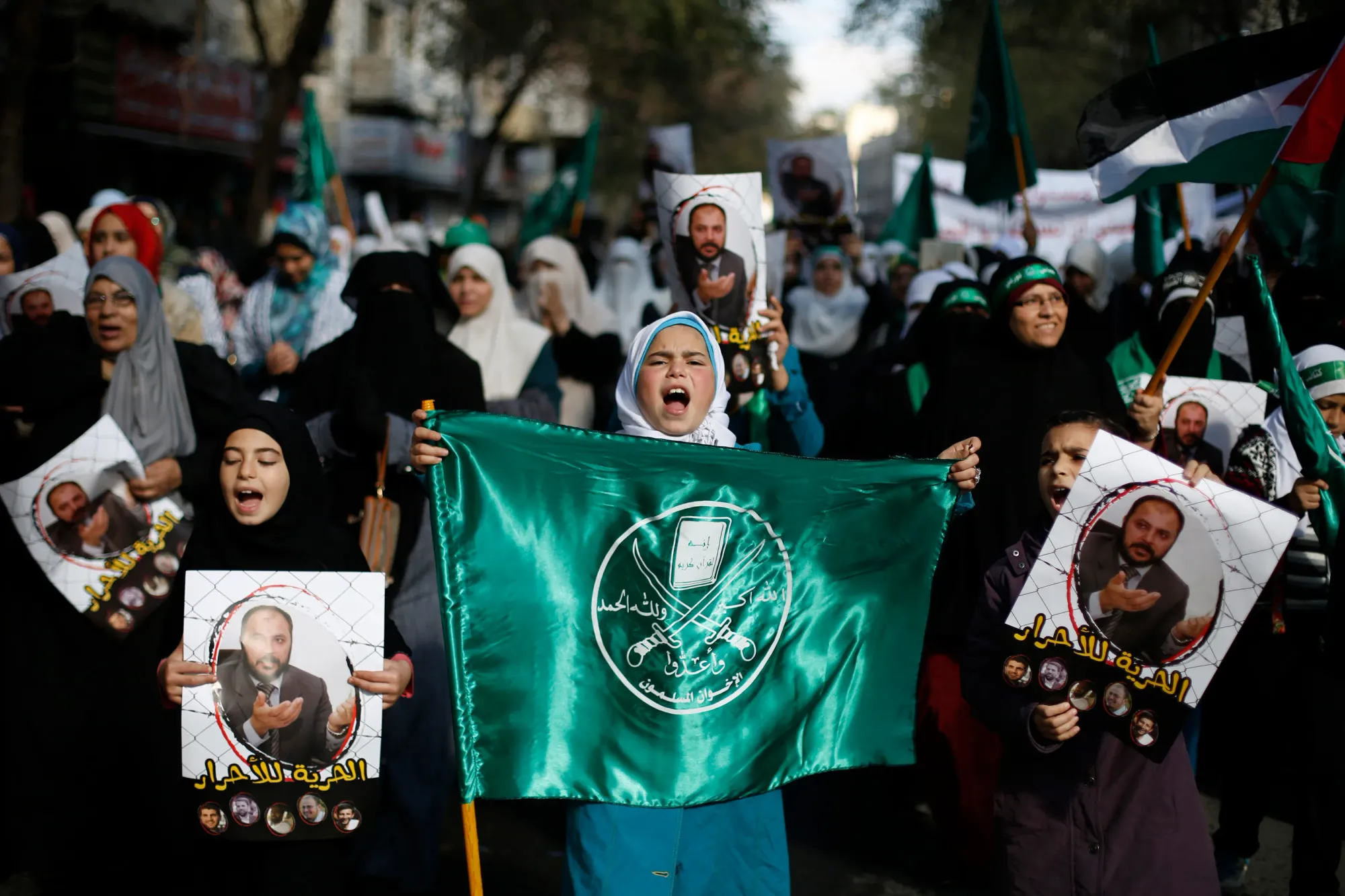
The Free Press, Simone Rodan-Benzaquen, 06.03.25
A new report found that, in France, Brotherhood-linked schools have distributed texts that praise Sharia law as superior to man-made law, denounce interfaith marriage, and vilify Jews.
France didn’t plan to blow the whistle on the Muslim Brotherhood’s attempt to take over Europe. But that’s exactly what it did a couple of weeks ago, when a classified report from the Ministry of the Interior leaked to the newspaper Le Figaro.
The 73-page document, marked confidentiel-défense, was meant for top officials only.
Based on intelligence files, field investigations, and dozens of interviews, it lays out a stark diagnosis: The Muslim Brotherhood has built an extensive ideological infrastructure in France—not through violence, but through schools, charities, mosques, and soft power. It states: “The Brotherhood’s strategy is to install a form of ideological hegemony by infiltrating civil society under the guise of religious and educational activities.”
The report is the most detailed government study to date of the Brotherhood’s presence in Europe. Written by two civil servants, it draws on months of fieldwork and analysis conducted in France and abroad, with input from diplomats, intelligence officials, academics, and religious figures. Its conclusion is blunt: The Brotherhood operates as a political project. Its goal is not sudden revolution, but gradual transformation. Its targets are hearts and minds. Its strength lies not in secrecy, but in strategic ambiguity. And it is not coming just for France. It is coming for all of the West.
The Muslim Brotherhood is a transnational Islamist movement that seeks to impose Islamic law through gradual, ideological means—primarily via schools, charities, and religious networks. While it claims to reject violence, it has extremist offshoots such as Hamas, and its influence often blurs the line between nonviolence and radicalization.
Its ideological lineage runs deep. Founded in 1928 by Hassan al-Banna in Egypt, the movement has always presented Islam as a total system—religious, political, legal, economic. But it was in Europe that this vision was tactically refined. After being banned or repressed in the Arab world, many Brotherhood ideologues took refuge in Western democracies. In Switzerland, al-Banna’s son-in-law Saïd Ramadan set up the Islamic Center of Geneva in 1961, and later raised his two sons, Tariq and Hani Ramadan, both of whom became leading voices of Islamist thought in Europe.
In the decades since, the Brotherhood has methodically expanded its presence across the continent—embedding itself in local communities through a network of mosques, charities, educational institutions, and civic associations, all designed to promote its vision of political Islam under the cover of religious outreach.
The numbers in France alone are startling. The Brotherhood’s French network comprises 280 associations, including 139 officially affiliated mosques and 68 more considered “ideologically close”—together accounting for nearly 10 percent of the mosques opened since 2010. Every Friday, some 91,000 people attend worship in these spaces. The movement also controls or influences 21 private schools (three of them state-funded) and 815 Quranic schools, where over 66,000 minors are taught to see themselves as part of a global Muslim community in moral and cultural opposition to Western secularism.
What, exactly, do they teach at these institutions?
Well, Brotherhood-linked schools have distributed texts that praise Sharia law as superior to man-made law, denounce interfaith marriage, and vilify Jews.
Antisemitism is not incidental in Brotherhood-affiliated organizations—it is central. “Hatred of Jews,” the report states unequivocally, is a core ideological element, often laundered through anti-Zionist slogans. In one mosque near Paris, a speaker recently declared “Je suis Hamas” (“I am Hamas”) to a cheering audience. In others, anti-Israel rhetoric bleeds seamlessly into classic antisemitic tropes. Hassan Iquioussen, a prominent preacher linked to the Muslim Brotherhood and recently expelled from France, is cited for repeatedly spreading antisemitic conspiracy theories. He claimed that “the Jews control the media,” and that they “manipulate historical memory to maintain their grip on global opinion.”
Meanwhile, many schools have promoted books by known extremists, including figures expelled from France on national security grounds. One high school, Lycée Averroès in Lille, was found to be teaching materials aligned with Islamist orthodoxy, and was receiving foreign funding from Qatar—which is cited elsewhere in the report for backing Brotherhood-linked institutions under the guise of philanthropy. Qatar is not the only nation implicated: The report names Turkey as the movement’s regional hub. Since the fall of Mohamed Morsi in Egypt in 2013, President Erdoğan has hosted Brotherhood exiles, coordinated meetings in Istanbul, and supported affiliated networks across Europe.
The Brotherhood’s strategy is not limited to religious and educational institutions. In regions like Lille, Lyon, and the suburbs of Paris, it has constructed what the report calls “ecosystems”: halal stores, youth centers, job training, matchmaking services, Islamic microfinance, and charities that together create parallel structures of authority for Muslims that frequent them. These networks aren’t illegal. They’re influential. And over time, they normalize a specific worldview: one that rejects multiculturalism and secularism. These spaces elevate religious law over that of the country, and impose social pressure on Muslims to comply, for example, with the expectation to wear veils.
The Brotherhood’s public face is polished. But the report emphasizes the movement’s use of “double discourse”—projecting moderation in public while promoting antisemitism, gender segregation, and ideological separatism in private. This is a tried and tested strategy for Tariq and Hani Ramadan. Tariq presented himself as a progressive reformer—polished, multilingual, and media-savvy, teaching at Oxford and advising government leaders, before his public persona collapsed under rape convictions. Hani embraced the harder line, openly supporting Sharia punishments and the subjugation of women. Their duality mirrored the Brotherhood’s own model: respectable in public, radical in private.
The Brotherhood’s new frontier is digital. The report details a wave of online influencers—trained in Brotherhood institutions, fluent in grievance politics, and calibrated for younger audiences. Some present as activists fighting “Islamophobia”; others cloak Islamist ideology in therapeutic or entrepreneurial language. One of the most prominent figures, Marwan Muhammad, now operating from Canada, was previously the head of the Collective Against Islamophobia in France that was dissolved in 2020. Together, these figures are reaching far beyond the mosque, preaching on screens in palms and in sitting rooms all across the globe.
Why have the activities of the Muslim Brotherhood gone unchallenged for so long? Because it doesn’t commit the kind of acts that trigger immediate alarms. It doesn’t hijack planes—it lobbies school boards. It doesn’t bomb cafés—it builds halal start-ups, Muslim schools, and marriage platforms. Its methods are slow, decentralized, and often indistinguishable from civic engagement. But it doesn’t have citizens’ best interests at heart; instead, it has the urge to spread hate across Europe.
France has taken a first step by naming the problem. President Emmanuel Macron, reportedly initially furious with the leak, has now, in response to public outcry, acknowledged the findings and ordered a national response. Sweden has followed suit, requesting the full report and launching its own investigation. Austria had previously produced assessments, but few have led to action. Belgium has accommodated Brotherhood-linked networks under the banner of multiculturalism. And the United States? Here, the conversation barely exists. While several American Muslim organizations have historical or ideological ties to the Brotherhood, public scrutiny is rare, and political discourse tends to avoid the subject entirely.
But the warning is clear. The threat is not just in France. It’s in Europe. It’s crossed the Atlantic. It’s all around you.
